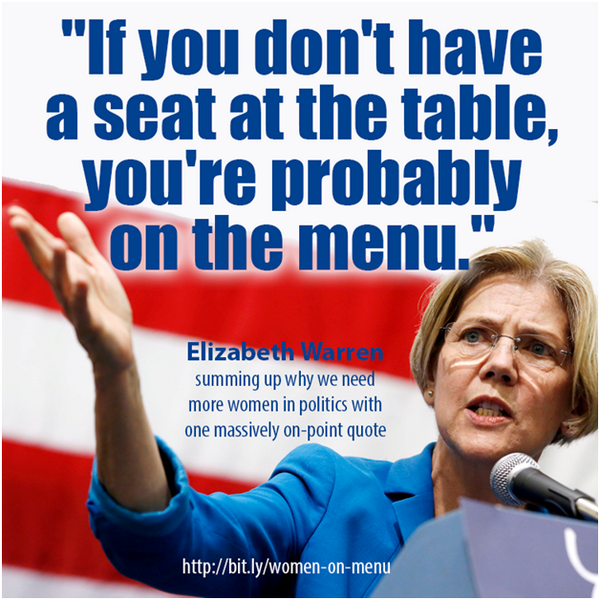Elizabeth Warren's Fiery Attack On The Bankers' Club That Runs America
Elizabeth Warren for VP? It makes more sense now than it did just a few weeks ago
The state of the Democratic Party and the emergence of Trump have created a unique opportunity for Warren
If you’d asked me a few weeks ago whether Elizabeth Warren would make a good vice presidential candidate for Hillary Clinton, I would have fired off a long list of reasons why putting the Massachusetts senator on the ticket was a bad idea. From a crassly electoral standpoint, she’s a Democratic senator whose vacancy would be filled by her state’s Republican governor, and elevating her to the vice presidency would undermine the Democrats’ chances of retaking the Senate. From a policy standpoint, she’s transformed herself into an influential voice for progressive economic policies from her perch in the Senate, and folding her into a presidential campaign/administration would necessarily subordinate her message and her presence to Hillary’s. Put simply, Warren has been doing great and important work as a senator, so why rock the boat?
Now I’m not so convinced. All those old concerns still apply, of course, but now I think they’re outweighed by the benefits, especially given how the Democratic primary has dragged on and how Donald Trump has behaved since securing the Republican nomination.
Bernie Sanders isn’t going down quietly, and nor should he. But the vigorous challenge he put up against Hillary has left some raw feelings and exposed an element of division within the party as the newer generation of Democrats balks at supporting an establishment figure like Clinton. I don’t think Clinton should pick a liberal like Warren to repair rifts with supporters of Bernie Sanders because, generally speaking, I think whatever intraparty injuries do exist will be mended by time and the threat of a Trump presidency. What Warren does provide, however, is a reason for liberal Democratic voters to be enthusiastic about a Clinton ticket.
As it stands, the party looks to be headed towards unity, but a good deal of that unification seems to be grudging or motivated by partisan loyalty. Polling from the New York Times shows that roughly 40 percent of Democrats who expect to back Clinton in the general election are either doing so with reservations or simply because she’ll be the party’s nominee. Those numbers have been consistent over the past few months. Warren represents a bridge between Clinton and that younger, more activist element of the party that she’ll need to turn out in November. For a lot of voters in both parties, 2016 looks to be shaping up as something of a slog, but Warren would give the ticket energy and she would give disaffected Democrats someone to get excited about.


No comments:
Post a Comment